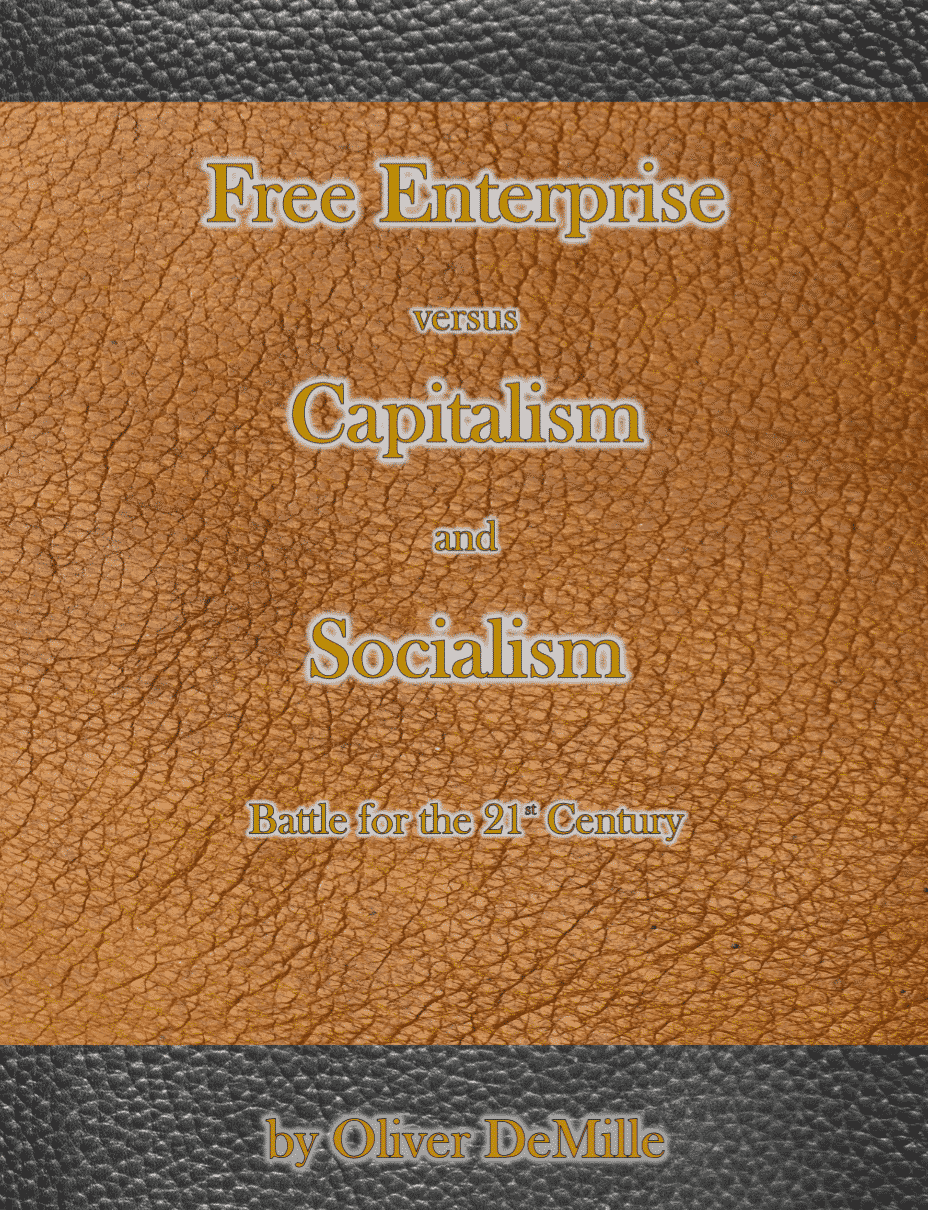THE JEFFERSON-MADISON DEBATES: A New Cold War is Coming PART II
June 11th, 2019 // 7:41 am @ Oliver DeMille
What Americans Can Do To Effectively Protect American Freedoms in the Decades Just Ahead
(Book Review of American, by Shanon Brooks)
Note to reader: read Part I of this report here >>
I. The Challenge
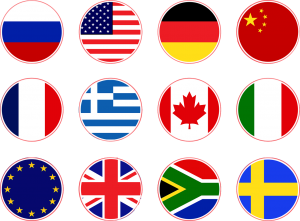
The 21st Century is shaping up as an era of major conflict, between (1) the three superpowers (the U.S., Russia, and China) and their allies and proxies (the European Union, Israel, North Korea, Iran, etc.), and also between (2) the Red- and Blue-state cultures that are further dividing America. If the U.S. doesn’t fix the problem (2) above, it will almost certainly lose the first battle (1) to China and/or Russia.
But what can regular Americans actually do? What will really work?
The three most effective things Americans can do to maintain our freedoms, families, and leadership in an increasingly dangerous world are:
- Spread great, classics- and freedom-based, leadership education
- Engage entrepreneurialism, the key to free enterprise, and encourage/help others to do the same
- Vote correctly and influence other voters to do the same (to protect and increase freedoms), and effectively influence government between elections
The battle for world leadership will come down to how well Americans do these three things. If we don’t win this battle, the world by 2040 will likely be run by two superpowers: China and Russia. Freedom values will be at odds with the rest of the world, and greatly reduced in the United States. Socialism will be the norm from the California redwoods to the beaches of Florida, from the Midwest to the Plains, and from the Rockies to Maine, in the cities and farms, and across all fifty states. Many of our most cherished freedoms will be reduced, or stolen.
How can we ensure that this doesn’t happen? A new book addresses this very question. This may be one of the most important books of our time; if we read and understand it, and take the right action, the future of America, our freedoms, our economy and our families, will be bright. If we don’t take the needed action…freedoms will be lost, socialism will spread, and families will suffer.
The book is titled simply, and sagely, American.
II. The Journey
Indeed, the title says it all. Written by Shanon Brooks, American gets to the heart of the problem, and the solutions. As Brooks puts it: “…we are killing the American Dream. Out of the top 30 countries in the world, the U.S. ranks 16th in literacy…and 14th in problem solving.”
Does that sound like a superpower? Or more like a past leader currently in decline? If we’re only 14th in problem solving, how can we truly expect to lead in the decades ahead, to tackle and solve our greatest problems, to help lead the world as it faces and overcomes the challenges ahead?
But the problem is even more daunting. Brooks wrote:
“National unfunded obligations are more than $100 trillion while U.S. household debt is at an all-time high of $13.2 trillion. We have one of the most litigious societies in the world, our incarceration rate is among the highest globally, and our state and federal legislatures are convinced that they are our cradle-to-grave caretakers.”
Unless something changes soon, and in major ways, we are not on the path to increased freedoms or economic opportunities for our children or grandchildren. In fact, we are quickly headed in the opposite direction.
As Brooks notes:
“How can we claim that America is the greatest nation in the world when 60% of our population can’t even pass the U.S. citizenship test? What have we done with the legacy of liberty that the founders so carefully crafted for us? And what are we creating to pass down to our children and grandchildren?”
The problem is real. The divide between those who even care about freedom and those who don’t is quickly expanding. And the root of the problem is at the very core of our daily lives: how we are educated, how we make a living, and how we participate (and don’t participate) as citizens overseeing and governing our own nation. As Travis Slade notes in the preface to American: “Pretty much everything about how we live today is killing the American Dream.” He’s right. And this book, American, is much more than a handbook on the principles of freedom—it’s all about how to apply those principles in the world today, in this economy, given the reality of the world we actually live in. Along the way, it addresses real issues across the board, including:
- Our Decaying Education System
- Our Work Life—Pros and Cons
- The Way People Vote and Otherwise Participate (or don’t) in Overseeing Our Government
- Commercial and Residential Construction
- The Health Care Industry
- The Transportation Industry
- The Food and Grocery Industry
- Local Law Enforcement
- The Issues of Immigration
- The Regulation State versus Free Enterprise
- Socialism versus Investment
- Employee versus Owner Mindsets
- Federal Government Overreach
- …Etc.
American asks us to seriously consider a number of poignant questions, questions that our national school/education system has patently taught us not to ask—or even think about in any meaningful way.
For example: “How can the American Dream be alive when each new American baby…inherits $300,000 of national debt…?”
And “…bureaucracy so deep and stifling that most just give up and give in.”
This book describes an America the Framers wouldn’t even recognize, a nation deeply entrenched in a bureaucratic quagmire the likes of ancient Byzantium, with a few celebrities, wealthy super elites, and top government officials (and their families) enjoying benefits akin to a medieval Venetian aristocracy.
And we call this “American?” It isn’t. It was supposed to be different. It was designed to be different. But only the people are capable of keeping our freedoms, as the Framers warned. No elites will save us. It is up to regular Americans.
III. Solutions
The best part of American is the solutions. I won’t spoil the book by listing them all here, or going into detailed applications and strategies, but they cut right to the heart of the matter, skipping symptoms and focusing on what we really need to do in order to steer things in the right direction. If we want real freedom, and effective results, we’re going to have to act. Brooks outlines what we need to do, and how to get started.
Specifically, as mentioned above, this book emphasizes the three major things we need to influence, change, and improve if America is going to survive as an effective beacon of freedom—in the world, and at home to the rising generations.
First, the right kind of education. Second, the right choices in the way we as a people make a living. And third, the way we vote—what goes into our voting decisions and the way we train up young people to be wise voters—and the ways we actively participate in governing our nation between elections.
Ultimately, these three things boil down to the quality of our learning, the kind of education we share, support, and pass on to our children and especially our young adults. If we get this right, the rest will follow. If not, our freedoms are very much in danger. America simply cannot survive three more generations of education like what we currently have.
We actually have two education systems in modern America, one for elites and those who work as the elites’ advisors, professionals, and managers, and another for the masses. Most Americans attend the second type of schools; the result is that America now educates mostly followers. This hard-to-hear reality is, nonetheless, true. It is time to face it openly, and change it. American is not just a great book on freedom and leadership, but an excellent book on higher education, right up there with Henry Newman’s great classic The Idea of a University, The Higher Learning in America by Robert Hutchins, An Education for Our Time by Josiah Bunting, and The Closing of the American Mind by Allan Bloom. Brooks benefitted from the ideas in all of these, and many others, and as a result American is the best book on higher education that I have ever read.
Every American who cares about freedom and our future should read it. And every American should care about freedom and our future.
Perhaps most importantly, Brooks’ book will introduce the reader to a number of very important ideas and principles that are seldom discussed anymore—in schools, homes, churches, or places of business, and certainly not by the media—but were once understood, cherished, and debated by every free American. The early Americans taught these things to their children, and were ashamed if any of their children couldn’t articulate these principles of freedom and life fluently and in detail. Such principles constitute the bulk of chapters 1 through 10 in American. Knowing them fully, and understanding how to apply them in society, was once considered crucial to being an American. They have now been almost entirely lost, and with them many of our freedoms. To reboot our freedoms, we must understand these vital principles and ideas.
It is time for us to know them. To pour over them, and to master them. To share them, teach them, talk about them, debate them, and apply them. It is past time. We cannot wait any longer. We must act. Again, our freedoms and the future of our posterity are at stake. If we get the freedom principles right, if we understand and effectively implement them, we will be another generation of American heroes. If not, the candle of American freedom will be snuffed out.
This is true. This is real. This is happening.
Not every person will apply the things learned in American the same way. Or even agree on every specific. This is the way it should be—free people applying principles differently, based on personal mission. But all of us should learn them. Know them. Ponder, discuss, and apply them as inspired.
It is time.
To act…
Recommended Reading
- American (Shanon Brooks) 2019—Available on the Monticello College website >>
Category : Aristocracy &Blog &Book Reviews &Business &Citizenship &Community &Constitution &Culture &Current Events &Economics &Education &Entrepreneurship &Family &Featured &Foreign Affairs &Generations &Government &History &Independents &Information Age &Leadership &Liberty &Mini-Factories &Mission &Politics &Prosperity &Statesmanship
THE JEFFERSON-MADISON DEBATES: A New Cold War is Coming – PART I
June 3rd, 2019 // 6:14 pm @ Oliver DeMille
The 3 Superpowers and The State of the World Right Now
(WHAT EVERY AMERICAN SHOULD KNOW)
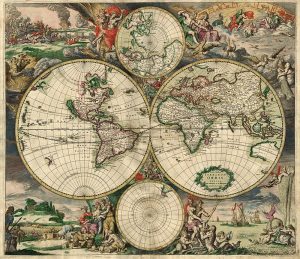
America isn’t supposed to act this way, the experts say. After all, we invented the liberal international order—the growing sprawl of international organizations, treaties, and laws that all nations are eventually supposed to join, and follow.
Founded in 1917, 1921, 1944 and almost every year since, Internationalism, now usually called Globalism, is America’s biggest export. More than freedom. More than apple pie. More than movies, even. But this whole arrangement has been turned on its head in the era of Brexit and Trump.
I: The United States
The two most powerful enemies of Globalism, Russia and China, once had a clear path to success—to slow down the growth of Globalism, slow down America and it’s NATO allies, and thereby increase their own status. For that matter, between 1944 and 2017, most U.S. policy makers had the same approach: spread U.S. influence by supporting the expansion of Globalism. Globalism itself was built on three main pillars:
- An “acronym salad” of international organizations (from the UN to the IBRD [World Bank] and IMF, from the World Court, the G7 and G8, to the GATT and eventually the World Trade Organization, etc.)
- Free trade agreements
- Collective security arrangements
By the 1980s, Internationalism dominated the U.S. government and universities; anything that differed from the aims of Internationalism was decried by experts as dangerous isolationism. When I was in college, for example, and wanted to study Political Science, multiple professors assured me that “Political Science is outdated; study International Relations–that’s the future.” The U.S. State Department and a host of foreign policy professionals in our universities convinced three generations (1964-2016) that Internationalism [and later Globalism] equals freedom, and that the U.S. is just one part of Globalism (along with a bunch of other nations)–not its indispensable leader.
This all changed with the advent of Brexit, followed by the surprising (to the “mainstream thinking”) election of Donald Trump.
According to one expert:
“Although future presidents will try to restore the classical version of U.S. foreign policy [Globalism], in all likelihood, it cannot be returned.”
(Foreign Affairs, May/June 2019, p. 10)
Why? Because President Trump is patently against free trade agreements that are built on Globalism rather than economic benefits for Americans, and against international organizations that sap American power and resources without giving back commensurate benefits to American citizens.
For the foreign policy establishment, this is heresy. After more than 70 years of trying to convince world leaders to join Globalism, Trump’s rejection of the Globalist system will probably make it impossible for heads of state to trust future U.S. assurances of Globalism. After all, as 2016 proved, a single election can significantly reverse, and even erase, seven decades of U.S. policy. This is what the American Framers intended, but it is anathema to the current foreign policy establishment.
As another article in the same issue of Foreign Affairs put it: “Can the State Department be Saved?” Short answer: No. The State Department is based on Globalism, and Globalism can be rejected by the American people in any given presidential election. The world is changed. Forever. The main reason given for this shift is interesting: the American people don’t trust “experts” anymore. (Foreign Affairs, May/June 2019, p. 14).
A secondary reason is that foreign policy experts worked very hard (from 1944 to 2016) to transfer increasing levels of power to the office of the Presidency, shifting it slowly over time from the Legislative Branch. (See ibid.) Turns out changing the Constitution in this backroom fashion has unintended consequences for the progressives who championed it.
II: Russia and China
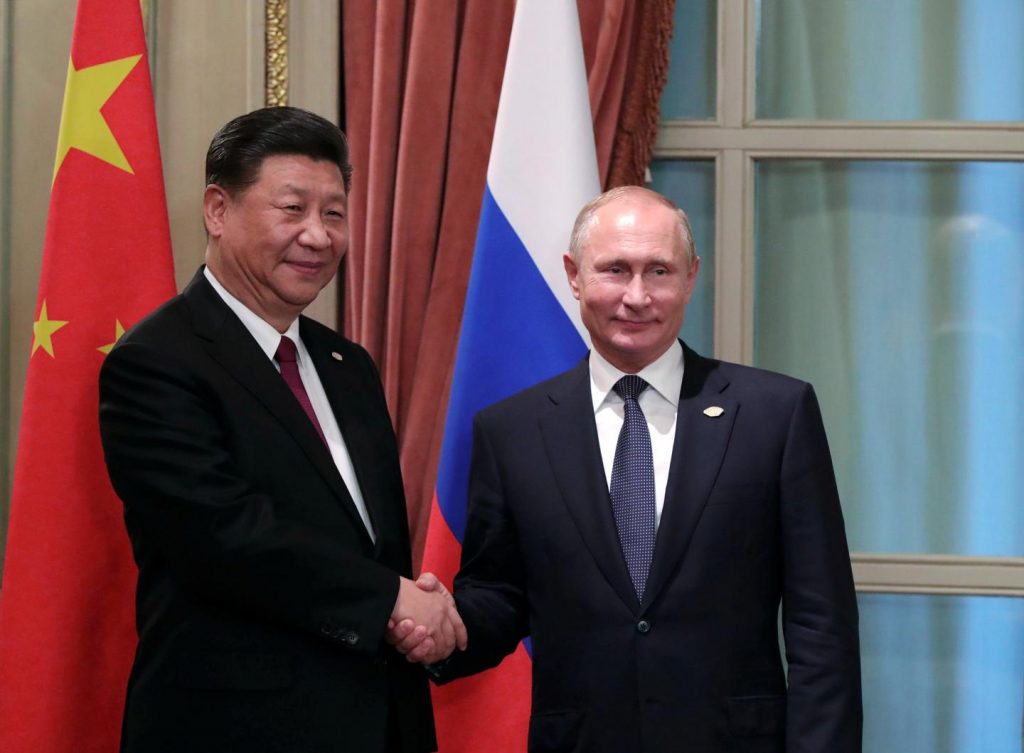
This drastic change is a shock for both Russia and China. Putin built his administration as the biggest outlier and opponent of Globalism, with a “Russia First” approach. [Richard Sakwa, 2019, Russia’s Futures]
As one Russia expert put it, Putin’s main goal for two decades has been to “Make Russia Great Again.” (Ibid.) The focus of this agenda was to keep Russia strongly in control of its own future by resisting Globalism as an ideology and Globalist international organizations in specific. Putin accomplished this by resisting the West at every turn, but simultaneously allowing Globalism to grow so that Western economies could continue to purchase Russian oil and other products.
Thus Trump and Putin agree on a general policy: “My Nation First”. But they are directly adversarial, because one wants to put the U.S. above the Liberal International Order and the other seeks to put Russia above Globalism and Globalist institutions. Same goal—opposite direction.
The two presidents have also employed very different means to achieve their goals. Trump’s main strategy has been to deregulate the U.S. economy, allowing increased economic freedom to reboot finance, commerce, entrepreneurship, and production; Putin’s major agenda has been a massive centralization of power to the office of President, i.e. himself. Putin has, in twenty years of power, created another Russian autocracy, with centralized powers that some experts say rival, or perhaps exceed, those of Stalin.
China is also drastically centralizing power to President Xi, to the point that a number of China experts consider this a return to Mao-level dominance by one leader. But unlike Russia, China worked hard from 1989-2017 to increase its influence as part of the Globalist community. It even supported, at least superficially, a level of U.S. leadership in international organizations—always with the understanding that the U.S. could lead as long as it also paid most of the bill.
The State Department largely saw this as a positive, and promised/fulfilled payments from U.S. taxpayers to numerous programs worldwide. At the same time, China frequently voted for these programs at the international level (again, as long as the U.S. was picking up the tab) and spent its own time and money buying up control of world natural resources in Asia, Africa, and Latin America. China now manages (by contract) more natural resources around the world than any other nation–far more than the United States. Ironically, communistic China preferred capitalist-style business contracts around the globe for water, food, oil, land and other natural resources, while U.S. claims to the same were usually negotiated by treaty and backed by arms rather than contract.
Today China, Russia and the United States are pulling away from each other, and all three are simultaneously pulling away from international organizations and the liberal Globalist Order. The future name of our era will likely be something like “The Return of Rivalry” (Foreign Affairs, May/June 2019, p. 19) or a “New Cold War” (Op cit., Sakwa, 2019). As Richard Sakwa put it: “Russia and the Atlantic System [NATO plus…] are locked in confrontation.” Add China to the mix, and a new Age of Rivalry is here.
Further details are sobering. For example, unlike the situation during the original Cold War, there are numerous conflicting rivalries at play right now, including:
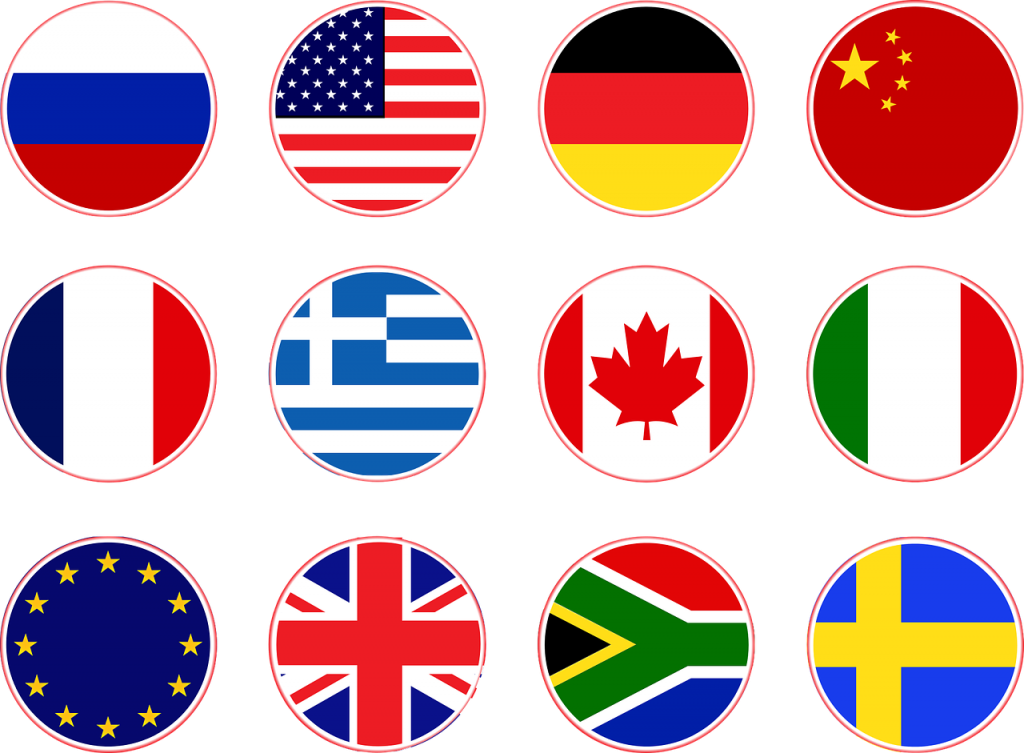
- U.S./Russia – U.S./China
- Russia/China
- U.S./European Union
- China/European Union
- Russia/European Union
- United Kingdom/European Union
- Trump Administration/U.S. Foreign Policy Establishment (or, on the broader scale, Red/Blue culture)
- U.S./North Korea (China proxy)
- China/Taiwan (U.S. proxy)
- U.S./Iran (Russia proxy)
- U.S./Cuba (Russia proxy)
- U.S./Nicaragua (Russia proxy)
- U.S./any nation with natural resources contracted to China
- Russia/any nation with natural resources contracted to China
- European Union/any nation with natural resources contracted to China
- Iran (Russia proxy)/Israel (U.S. proxy)
- Syria (Russia proxy)/Israel (U.S. proxy)
Serious flashpoints ahead. Proxies can, of course, cause major problems between superpowers, for example the Korean War and Vietnam War, not to mention the proxy-conflict that sparked World War I. Also, unlike the Red-Blue division in the United States that seems poised to create increased internal conflict in the years ahead, both China and Russia have consolidated powers, and the leading groups of influence within their respective nations are currently, and strongly, behind Xi and Putin. This solidarity is particularly surprising in Russia, where the four major power groups seldom agree on much, but right now concur that Russia should be less acquiescent to the United States and the West: “All four of the great interest-ideological blocs broadly support Putin…and indeed, the main criticism of three of them is that he has been too weak and accommodating to the West’s demands.” (Op. cit., Sakwa, 2019)
III: Dangers Ahead
If (when) any of the rivalries listed above escalates, each superpower will ultimately tend to fall back on its areas of strategic advantage. Every American should understand these advantages, for all three superpowers.
China: The Chinese strategic advantages are access to natural resources, manpower for traditional military conflict, and a tightly centralized command structure. Note that the latter isn’t an advantage for freedom, but during conflicts it is a distinct strategic benefit. China is built for outlasting the enemy, holding on and waiting for opponents to tire out, burn out, or give in. Anyone engaging a major conflict with China needs to be prepared for the long haul—and plan in terms of multiple decades rather than years.
United States: If the conflict is dominated by economics, a non-regulation-oriented Administration paired with an enterprising U.S. culture is a serious short-, medium-, and long-term advantage. (A high-regulation Administration would cancel this advantage.) In a major conflict, incentivizing the entrepreneurialism of the populace will be the major key to American victory, or even stalemate.
Russia: If the battle turns violent, Russia will be tempted to rely on the advantage of its nuclear arsenal. Indeed, in today’s New Cold War, Russia finds itself facing a very different situation than during the 1950s-1980s. At least four significant differences could change everything:
- Russia today doesn’t have the allies the USSR had. (Op. cit., Sakwa, 2019)
- China is a third superpower, complicating the whole situation, especially since it is geographically adjacent and shares the world’s largest militarized border with China. (Ibid.)
- U.S. deregulation of domestic oil production since 2016, and other contemporary increases in oil production around the world have reduced petroleum as the major income stream it once was for the USSR/Russia. (See ibid.)
- Cyber weapons are a new reality, something both China and Russia are endeavoring to master. (See ibid.)
These four shifts in geopolitics strongly increase Russia’s dependence on nuclear weapons as its main, if not only, strategic advantage. This is dangerous. And this rivalry is just heating up.
Conclusion

For the United States, the greatest danger probably won’t come from lack of resources or a nuclear attack—both can be effectively deterred by strong and unified leadership—but rather by the growing chasm between Red and Blue culture.
The worst-case scenario for U.S. national security in the Twenty-First Century may well be a pattern of yo-yo elections (Op cit, Foreign Affairs, 2019), four years Red followed by four years Blue in the Oval Office, repeating again and again. Four years isn’t enough to truly reboot the economy and military (Red agenda), or restructure the economy on more collectivist and regulatory lines to increase social equality (Blue agenda). To build one agenda for four years, then tear it down for four years, over and over, will almost certainly guarantee American weakness and long-term economic/security decline. An eight-year cycle would be less extreme, but still bad. This yo-yo pattern is also, unfortunately, the most likely scenario given current trends in America. (Ibid.)
Great superpowers are seldom conquered from without. Instead, they fight internally, causing their own decline from within. This is precisely what we are witnessing right now. The election of 2020, and even more tellingly the election of 2024, will signal which of the following paths we are pursuing:
- A U.S./China dominated world in the year 2040, or,
- A Russia/China dominated world in the year 2040
Americans must take action to effectively protect American freedoms and superpower leadership in an increasingly dangerous world.
What we as citizens can actually do, and how to do it, will be addressed in Part II of this Special Report, to be published next week.
Recommended Reading:
- Russia’s Futures, Richard Sakwa, 2019.
- The Shanghai Free Taxi, Frank Langfitt, 2019.
- Foreign Affairs, May/June 2019
- The Third Revolution: Xi Jinping and the New Chinese State, Elizabeth C. Economy, 2018.
- The Tragedy of Property: Private Life, Ownership and the Russian State, Maxim Trudolyubov, 2018.
Category : Blog &Citizenship &Community &Constitution &Culture &Current Events &Economics &Featured &Foreign Affairs &Generations &Government &History &Information Age &Leadership &Liberty &Politics &Statesmanship
Let’s talk presidential election 2020
May 8th, 2019 // 6:30 am @ Oliver DeMille
News of the Day

May 2019:
Let’s talk politics briefly–specifically the 2020 U.S. presidential election. Who is the leading candidate for the Democrats? According to the polls, it’s Joe Biden. But it’s way too early for the polls to get things right, and even if the polls could make an accurate prediction right now, the real answer to this question (“Who is the leading candidate?”) goes much deeper than polls, or even who’s running for office.
The real question, as political insiders understand, is this: “Who is the greatest threat to each party’s candidate?” The answers are significant. In the case of Democrats, the major threat is Donald Trump. This is always true of incumbent presidents, so no surprise here. But in the case of who looms as the biggest threat to president Trump in 2020, the answer is a bit surprising for most people, and certainly for anyone who gets their news from the mainstream media. Again, for insiders the answer is clear. But what is it?
Trump vs. ???
Does Trump’s major threat come from Joe Biden? Or Bernie Sanders? What about Kamala Harris, or Cory Booker, or any other Democrat senator, governor, mayor, representative or billionaire running for office? Or perhaps a serious run by Michele Obama, if she makes the unlikely choice to seek the Oval Office?
Answer: None of these. In fact, Trump’s major threat for the 2020 election comes from a former short-time member of George H.W. Bush’s administration in 1992. As mentioned, this is a surprise. But real. The big threat to Trump winning the election is Jerome Powell. For most Americans, the immediate response is “Jerome who…?”

Powell is the chair of the Federal Reserve, and Fed decisions between now and election day 2020 can almost single-handedly determine whether Donald Trump ends up serving one or two terms. How? Answer: As Bill Clinton advisor James Carville once quipped, “It’s the economy, stupid.”
It’s the Economy, Stupid
The 2016 election pitted strongly-blue states against firmly-red states, but came down to Republican wins in the Rust Belt: Pennsylvania, Michigan, Wisconsin, Indiana, Ohio, and West Virginia. Today these states are experiencing precisely what they voted for in 2016: a booming economy and rising wages, most notably among middle class working voters. If this continues, or even holds steady at current levels (barring major catastrophe of some kind), 2020 is likely a “shoo-in” for Trump/Pence.

If the boom stagnates, or returns to economic decline and “slow growth or no growth as the new normal,” as experienced from 2008-2016, the eventual Democratic nominee will likely sweep the Rust Belt and many-if-not-most of the Purple swing states. That’s the game.
The most significant factors determining economic upswing or downturn, now that the current Administration has drastically reduced the regulatory red tape that hampered business growth during the Bush and Trump eras, are the choices made at the sole discretion of the Federal Reserve. Jerome Powell, not the political parties and not even the media, potentially (if the Fed chooses to put its thumb on the scale) holds the future in his hands.
The Constitutional Question
For me, the real issue here is the following question: “What would the American Framers and Founders say about this arrangement?” Probably the same thing most Americans should be thinking about a lot more:
Why does an institution not even mentioned in the Constitution, and facing only one minor Constitutional balance and no serious Constitutional checks from any of the three branches of the U.S. Government, have this kind of power?
Whatever your politics, why does one organization and its head, virtually unknown to the large majority of Americans, control our future? This is THE question of the 2020 election, but so far I haven’t heard it voiced anywhere.
Category : Blog &Citizenship &Community &Constitution &Current Events &Economics &Featured &Generations &Government &History &Independents &Information Age &Leadership &Liberty &Politics &Prosperity &Statesmanship
TODAY IN THE NEWS by Oliver DeMille
May 6th, 2019 // 6:44 am @ Oliver DeMille

I. Today in the News
There is so much going on in the news these days–big events that have major potential to influence the future of our nation and freedom. Unfortunately, almost all the news is reported with strong partisan leanings. The slant and spin are frequently overwhelming.
To respond, I’ve decided to do a several-times-a-week news post that steps away from current partisan spin and addresses the big news of the day from the perspective of the U.S. Constitution and the viewpoint of the American Founding. It will give readers a different way to look at things several times a week. I’ll try to keep these brief and to the point, just a few paragraphs per post. I hope you will comment and share so this can influence people…
Here’s the first post:

Friday, May 9, 2109
The Democrat-led investigative committees of the House of Representatives are threatening to force the Attorney General of the United States and other Administration officials to testify, even to the point of contempt charges and sending the House Sergeant of Arms to arrest and detain them until they comply. Many Democrats (and left-leaning mainstream media) claim they have this power (though it hasn’t been used in nearly 80 years), while most Republicans argue that this would violate the Constitution with the Legislative Branch usurping duties held by both the Executive and Judiciary. Founding Father St. George Tucker wrote about this same threat in 1803 and outlined 6 specific ways this action would violate the Constitution; his list sides with the 2019 Republican view (The Founders’ Constitution, vol. 2, pp. 311-313.) So–no surprise–there’s a partisan split on the topic.
But let’s look at this from a third perspective. Speaking ironically: wouldn’t it be great if the House did it and made it stick?
Before you answer…think about it. On the one hand, the Democrats are wrong about this on Constitutional grounds, so that would be bad. And in an ideal world, that should be the end of the discussion.
But on the other hand (again, speaking ironically), wouldn’t it be nice to see the House of Representatives actually do something to check another branch of government? This is hugely important.
The Framers gave the House the biggest check of all–the power over the purse strings, meaning control of all money spent by the federal government–because the House members are the federal officials most easily removed and replaced by the voters. The Framers wanted the people, the voting public, to have the biggest voice in the federal government, and the only direct voice they gave the people was through the House.
But the House hasn’t used its purse strings to check the Court or the Executive Branch in big, meaningful ways for many decades. Executive Agencies and the Courts have gotten away with numerous unconstitutional actions because the House has been weak. Indeed, where the Framers wanted the House to have the most power of all the entities in the federal government, today the House is the weakest.
Not good.
To the current threat of the House apprehending and jailing uncooperative government officials: If the House followed through on this threat, it would create a precedent that the House can arrest and jail members of the other branches who aren’t obeying the law. Not the ideal system of checks and balances, to say the least; but might it actually be better than the House (and the people) having basically no power at all over the other two branches?
If we’re going to violate the Constitution routinely, this violation would at least be a path that gives more power to the people. Right now, given current news of the day, this seems bad to conservatives; but they would have loved it when Eric Holder ran “Fast and Furious” and the House could just arrest and jail him.
Yes, this sounds a bit wild; but given the current lack of House power, you could make a case that this is a step in the right direction.
Yeah, of course
Ideally the House would just fulfill its Constitutionally-defined duties and use finances to check the Executive and Judiciary. If the House isn’t going to follow the Constitution, and the voters aren’t either, then is allowing the House to have some little power to check the other two branches a lesser evil?
What do you think? Whatever you decide, this kind of considering each branch’s options is exactly the way the Founding generation would have thought about it. Today, far too often, Americans simply accept whatever the media, party leaders, or experts say, without thinking about the issue from all angles like the regular citizens did in early America.
Which is worse: a House that has no power versus the Executive Agencies and Courts (allowing them to run rampant), or a House that can arrest government officials who are violating the Constitution? Sometimes the House would get it wrong, but the alternative is that the Executive Agencies and Courts act with almost unlimited power and impunity.
Where do you stand on this?
Please comment and share….
II. Free Enterprise is Better than Socialism or Capitalism
“It is no crime to be ignorant of economics, which is, after all, a specialized discipline and one that most people consider to be a ‘dismal science.’
But it is totally irresponsible to have a loud and vociferous opinion on economic subjects while remaining in this state of ignorance.”
—Murray Rothbard
THERE is a battle raging for the future of America. And, by extension, this battle impacts the prospects for freedom around the world. Indeed, if the great system of freedom initiated by the Declaration of Independence and established by the U.S. Constitution is lost in the United States, it will likely take centuries before real freedom regains its current levels of influence in the world.
This is the great struggle of our generation, but sadly the center point of this contest is unclear to most people. Only a relative few understand what is actually going on behind the scenes.
In fact, this battle for our future hinges on two main questions.
The first question is:
Will Socialism or Free Enterprise be the leading economic system of the 21st Century?
Category : Aristocracy &Blog &Citizenship &Community &Constitution &Culture &Current Events &Economics &Generations &Government &History &Information Age &Leadership &Liberty &Politics &Statesmanship
The Jefferson-Madison Debates: How to Get the Real News in 2019
February 6th, 2019 // 12:06 pm @ Oliver DeMille
by Oliver DeMille
Part I
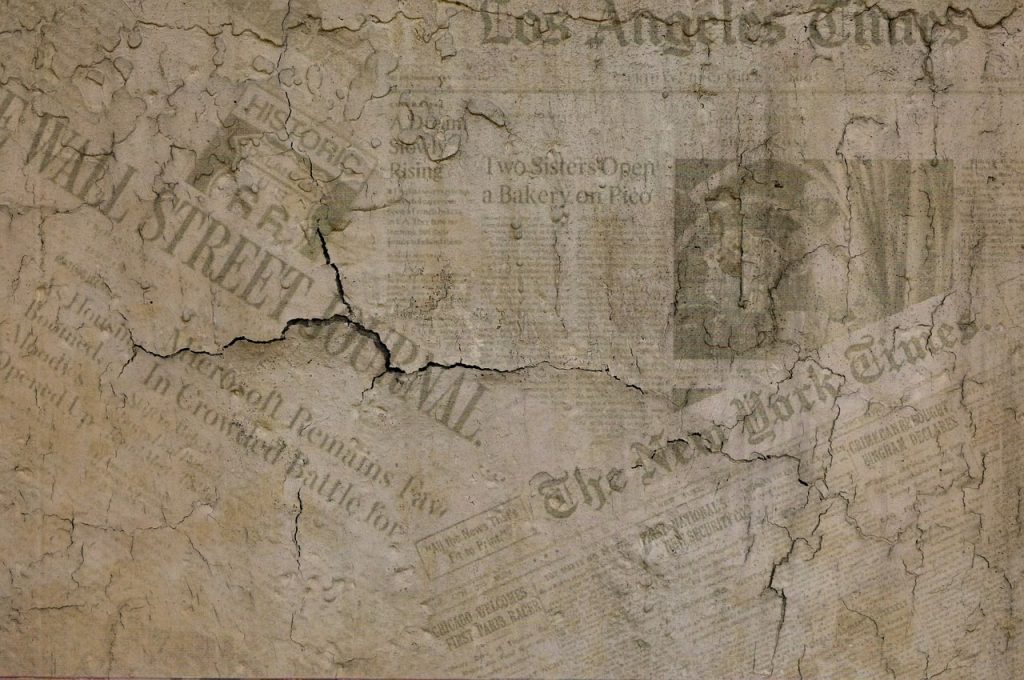
Since the night of the 2016 U.S. presidential election, the rules concerning media have changed.
Before this watershed event, a person could get a decent understanding of what is going on each week by consuming three pairs of news products:
(1) a liberal and also a conservative nightly news program or Sunday morning weekly show,
(2) a regular liberal and also conservative newspaper or magazine, and
(3) at least one or two non-typical news sources that include different perspectives (e.g. The Economist, providing a British view outside U.S. Republican/Democrat thinking; Foreign Affairs, a peer-reviewed journal presenting scholarly perspectives on major world trends and issues; and/or a business or cultural publication that addresses news but mainly emphasizes how current events impact the economy and society, such as Fortune, Forbes, The Atlantic, Harper’s, or Vital Speeches of the Day. A number of publications fit this third description, including my favorite, The Harvard Journal of Law and Public Policy.)
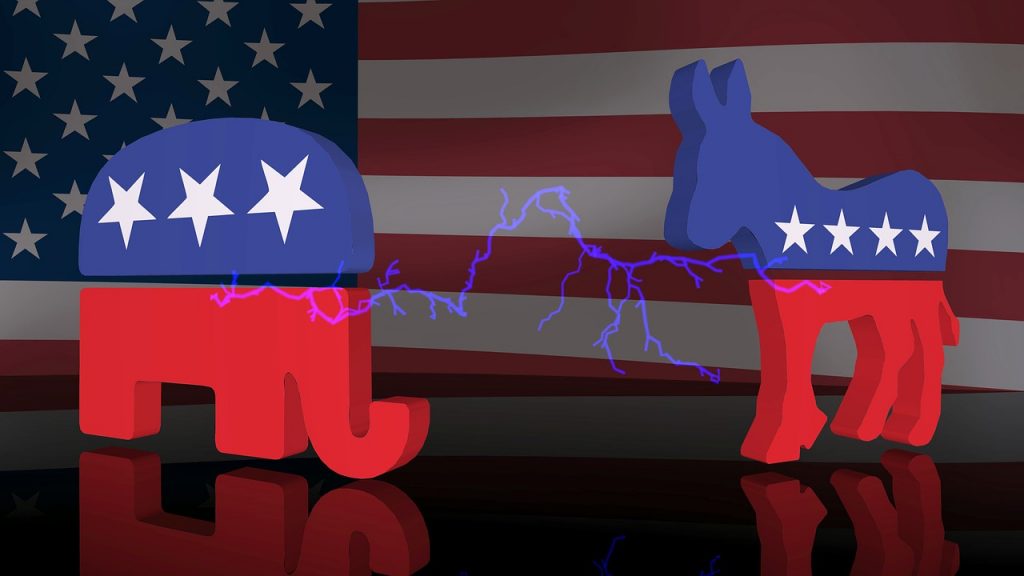
Today, sadly, this formula won’t help most citizens understand what is actually happening in our nation. The mainstream media has become almost exclusively partisan, and conservative news outlets, even those striving to be objective, seem to spend most of their resources and energy rebutting mainstream stories. This intense, and often angry, debate between Left and Right media has been good for certain corporations, but not very friendly to truth. The media is mostly agenda now, with far less journalism than in earlier decades.
So how does a citizen keep a close eye on current events? Yes, you can apply the old formula, by reading The Washington Post and The Wall Street Journal every day, but in this digital age the e-media has moved on by the time old-style readers can digest what almost always amounts to “yesterday’s headlines.” The issues people are talking about are more current (to the hour), more edgy, and almost always tainted with partisan spin.
“The facts, ma’am, just the facts,” is no longer a reality in most venues. Also gone to the dustbin of history is the sensible viewpoint described here: “Tell us what happened, and let us draw our own conclusions about what it means. Report the news. We’ll weigh it, consider, and apply what we’ve learned as needed.” These are now mostly sentiments of a bygone era.
In the same vein, “We are journalists; trust us…” is a ridiculous statement that never held much sway. Americans in the 1950s and 1960s largely trusted the news precisely because journalists didn’t expect people to “just trust them”. These same journalists would have laughed off a criticism of “fake news” precisely because the quality of their work wasn’t anything close to fake. The suggestion of “fake” would have made them smile. Today, in contrast, it scares them.
Why? Because agenda news isn’t journalism.
Talking Heads
We have, as mentioned, entered a new era of media. This trend is based on more than the hordes of niche media consumers who frequent only one news outlet that mainly agrees with their own politics, be it mainstream or conservative, broadcast or online, and seldom if ever compare what other news providers are saying. It’s deeper than whether you love Jim Acosta’s “integrity and grit” or dislike his “rude partisan rants”. It also goes way beyond Fox versus MSNBC debates, or whether you love Rachel Maddow, Ben Shapiro, or even Steven Pinker versus Jordan Petersen.
The problem, the real crux of the issue, is that a lot of Americans would still like a simple, balanced, focused-on-the-facts source of news and current events, something they can trust to tell them both sides, and a third or fourth side where applicable, while treating them like adults who think for themselves and don’t need experts to hold their hand and tell them what to think. Foreign Affairs still does this most of the time, as does The Harvard Journal of Law and Public Policy and others like Foreign Policy and Harvard Business Review, but these don’t usually address the daily or even weekly news. They can add a lot to whatever our daily source of news is, but they don’t take its place.
The bad news is that there is no single source we can go to for such news anymore. The good news is that there is a solution. But like a lot of other things in the postmodern age, it requires us to look at things very differently. Specifically: it’s no longer what news source we use to stay abreast of current events; now the focus has shifted to how we read, listen to, or watch the news.
What exactly does this mean? Put simply, the best way to get the most out of the news in our time, to really see through the widespread partisan spin and understand what’s going on in the world, is to call the media’s bluff. We have to stop thinking of the news as media—objective news or fake news—and start seeing it for what it really is: entertainment.

That’s right. The news is entertainment. Merely entertainment. Period.
Twenty years ago this would have been a criticism of those providing the news, but that’s not what I intend here. I am not suggesting that because the news has become entertainment it has lost its value, or turned worthless and untrustworthy. That might be the first thought that comes when you accept that news is now largely entertainment, with only a tiny bit of journalism sprinkled in. But that’s not what I’m saying.
The Good Ol’ Days
We can pine for the old ways—the time when “journalists were journalists” and trust was natural and simple. But this is like telling our kids that when we were young we walked to school everyday barefoot in the snow, uphill both ways. It just doesn’t apply anymore, even if it was ever true. If you’re looking for unbiased, or at least mostly objective media, free of spin, partiality, or partisanship, you’re going to struggle.
Even the journalists who try, who work hard to meet old-style journalistic standards every day, are impacted by the reality that the partisan agenda of many media outlets is itself news, and when one column or broadcast skews the facts, or even presents them truthfully but not transparently, even the most objective newsperson is going to need to show this news—and in passing along the story, and responding to it, even as an attempt to set things straight and focus on the facts, it becomes part of the partisan debate.
This is the tough new reality. If a report is fake, those pointing out its flaws become part of the other side. If, on the other hand, a report is not fake, those showing this are openly at odds with the side that disagrees. Avoiding the battle is akin to going off the air, or stopping the presses. Every story is now part of an agenda, for or against.
So, again, how can the citizen who just wants to know the facts be sure he is getting them? The solution is counterintuitive. If you look for the facts, “just the facts”, you’ll get bombarded by both sides, and you still won’t know which set of facts is most accurate about specific details. This is one reason so many people today simply pick a side and limit their news consumption to one or two sources—those they already agree with, in most cases.

But to really get the most from the news, try a totally different approach. Step back, relax, and stop going the news for facts. Instead, start seeing news as entertainment. They want you to watch, because they want two things. The increased ratings they get when more people tune in. And, just as important, to convince you that their set of facts is the right one. The best one. The one you should trust. Ratings and power, ratings and influence ratings and marketshare, ratings and product sales—this is the new media.
If you’re trying to get the truth, this can be frustrating. But if you’re there to enjoy the entertainment, it can be a lot of fun—and quite informational in the process. It’s enjoyable to see two sports teams fight each other for victory. If you’re too emotionally tied to one team, the game won’t be nearly as fun unless they crush the other side (which means that most of the time you’ll be disappointed). It’s fun to see opposing racehorses push each other around the final turn. But if you’re emotionally connected to one winner, most races lose their joy. It’s fun to watch dueling news reports unfold and reveal which was right. Of course, this only works if you let it. It won’t be fun if you agitate about who is right versus wrong, or who is ruining our country versus bravely sharing the real news. If you get caught in that mousetrap, it’s painful, and confusing.
But if you watch the duel for fun, and pay close attention to the details and who scores more truth today versus tomorrow, which news show gets the most right versus the most wrong, it can be really enjoyable. And, amazingly, you’ll learn a lot in the process—a lot more than the other people in your city, or nation, who love one source of news and hate the other channels, or who are convinced it’s mostly “fake news” or, alternatively, that hardly any “fake news” is really happening.
Nothing News Under the Sun
People on both sides, by limiting who they’ll listen to and closing their minds to different viewpoints, tend to get more wrong than right. Those who are too emotionally connected to one side, against the other, frequently get in the way of their own common sense—they are easily led this way and that, by a news media that is actually now a branch of entertainment.
Only those who openly see that it’s all entertainment, and treat it according, are able to glean a lot of value from the news, and at the same time recognize its glaring limitations and blind spots. People who watch the news for entertainment naturally turn on their analytical and creative brains; thus they understand a lot about what’s really going on. They start “reading between the lines.” And they are much more likely to notice gaps in the media coverage that demand more research and consideration.

The blind followers—on both sides—are too busy being swayed by the latest broadcast, polls, “crisis”, or post. The relaxed thinkers, who knowingly watch the news media as entertainment, learn what the two sides of the political battle are thinking and doing on any given day/night, and they simultaneously have the creative (not emotionally driven) space to see that there are other things, often more important things, happening. They see the news as one little part of the big picture, which means they are watching the big picture—not caught in today’s agenda.
In our current world, watching the news as entertainment is highly valuable. Watching it as journalism is naïve and usually debilitating.
That’s the rub.
And you probably already knew that.
Part II
Let’s apply this on a deeper, and more important level, “the big picture”, so to speak. The ruling elite don’t like it when serious competitors try to rise to their level of power. For example, when Joe Kennedy declared war on the elite establishment and tried to reduce their hold on things, elites fought back. Kennedy’s son, John, was shot in the conflict—assassinated, they say, by a lone gunman. Almost two decades later another man tried to accomplish the same goal—return real power in the United States from ruling elites to the people. Same goal. Similar agenda by a U.S. president bucking behind-the-scenes power, and the same result. Reagan was also shot by a lone gunman.
If you want to be sure your friends think you have extreme political views, tell them this is part of a conspiracy. If, on the other hand, you want to believe the mainstream media, you’ll chalk these parallel historical events up to pure coincidence. The pattern is clear: take on the elite powers; refuse to back down when they use media, academia, and their own experts to discredit your project; and then get shut down by some surprising, unplanned, random event that seems totally unrelated to those in power, to those who directly benefit the most from what happens.
That’s the American history we teach in U.S. schools every year.
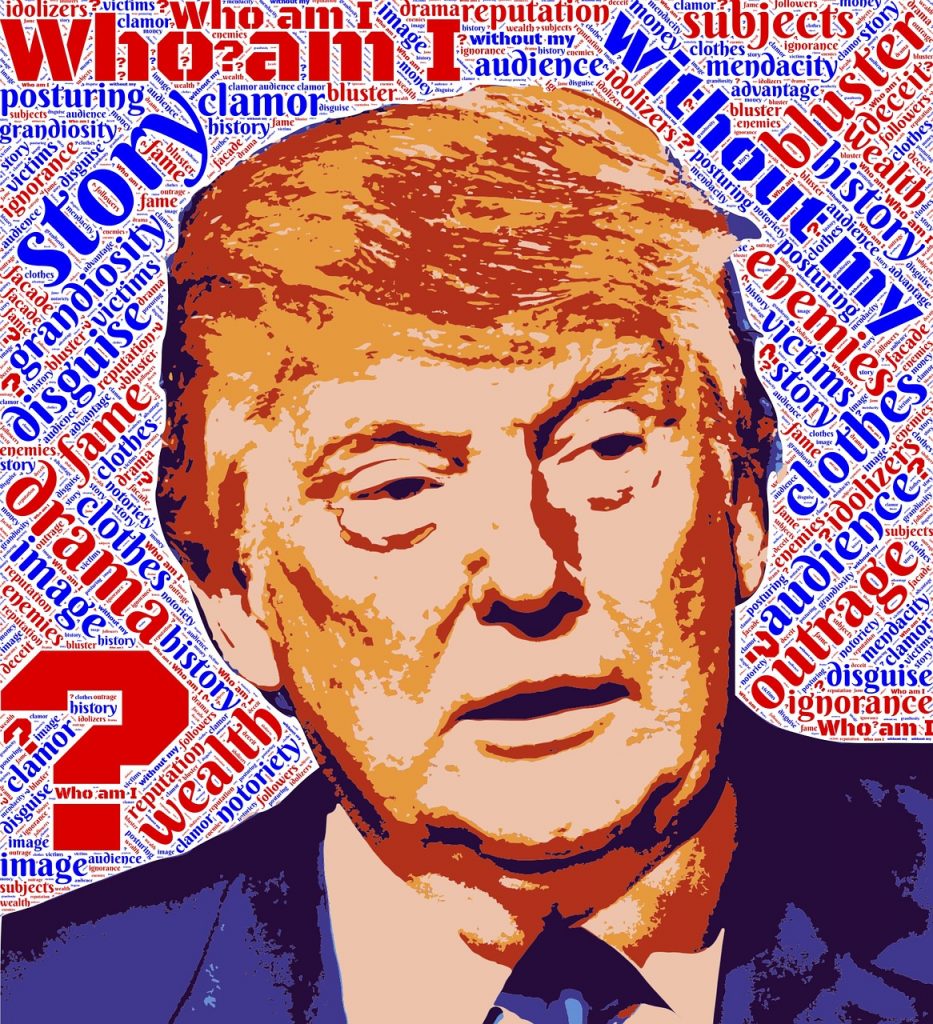
Enter Donald Trump. He has openly taken the first two steps in this process. Does this mean Step 3 is coming—some sort of major event that shuts down his project to unseat America’s ruling elite? If so, what do elites have in mind? A Special Counsel probe that finds something truly treasonous and brings an end to a presidency? An economic shock that drastically deflates the economy—like during the Hoover era? A RINO Republican Congress that successfully impeaches a sitting president? Or something else? Possibly an international event that changes everything, something unthinkable like an EMP or foreign use of a biological weapon that impacts the U.S., major devaluation of the dollar, or a sudden debilitating rise in oil prices?
The reality remains to be seen—“to happen or not to happen, that is the question”. But one thing is clear: the ruling elite (in both parties) aren’t happy with Trump. A number of people, and no doubt various groups as well, are brainstorming and planning for significant change. In some way. And soon. Do I know what it is? Not at all. Can you or I guess? Probably not. It will likely be surprising, when it comes. If it comes. But one thing is certain: whatever is coming, few people in the media know about it, and the main focus of the news media is to distract people from what’s ahead—not warn them or help them prepare. The new media is agenda-driven entertainment — not deep wisdom.
Next
To prep the populace for the next crisis would defeat the main objective, which is to get as many people as possible to turn to elites for succor when crises arise.
Here is another certainty: almost nobody who is caught in the emotional daily sway of either media—mainstream or alternative—is giving this much, if any, thought. They are too focused on “the crisis of the day”, a powerful tool of media that almost never fails to get good ratings.
In other words, the only people who clearly see that some serious crisis (or series of smaller crises that build on each other) is coming, soon, and that it will take the nation in new directions that increase the influence of elites, or decrease their influence if Trump (or another outsider) wins the next skirmish, are those who watch the news as entertainment.
Watching the media and getting caught in today’s latest stress won’t help—you, or anyone. Trusting the media, or taking it at face value, won’t help either. This is entertainment, not journalism.

What will help? Simple: watch the media and see the ruling elite and Trump fight. See the tug-of-war as they strategize and clash, rebuild or refocus. Lose a point, win a point. Bluster, regroup, fight again. If you’re relaxed, and watching the media to witness an epic battle between the two main sides, each seeking control, you’ll learn a lot about what’s actually happening. It’s high drama.
Otherwise, you’ll think the daily crisis is actually the news. It’s not. It’s just the 24-hour-cycle contest for ratings, and the power that comes from agenda-loyal customers. But in each daily crisis there is a thread, part of an overall pattern, a back and forth brawl between the elites and their current opponents.
Like I said, it’s fun, or at least interesting, if you know what you’re watching.
Part III
“But what’s happening in our nation, and around the world, is so important.”
“Well, yes. That’s true. But what does that have to do with the corporate-run news?”
“Everything!”
“Wrong. It has almost nothing to do with the news, except that the deep importance of what is happening here and around the world is a powerful incentive to get people to watch. But the news itself isn’t about truth. It should be, one can argue. But it’s not. It’s about ratings and agenda. It’s about keeping the listeners tuned in, and loyal (so they’ll keep tuning in every day); once loyal, it’s about corralling them for political impact. But to make this work consistently, it has to be supremely entertaining. Otherwise, other media outlets out-entertain and get the ratings, not to mention most of the clicks.”
“But that’s so cynical.”
“And so true.”
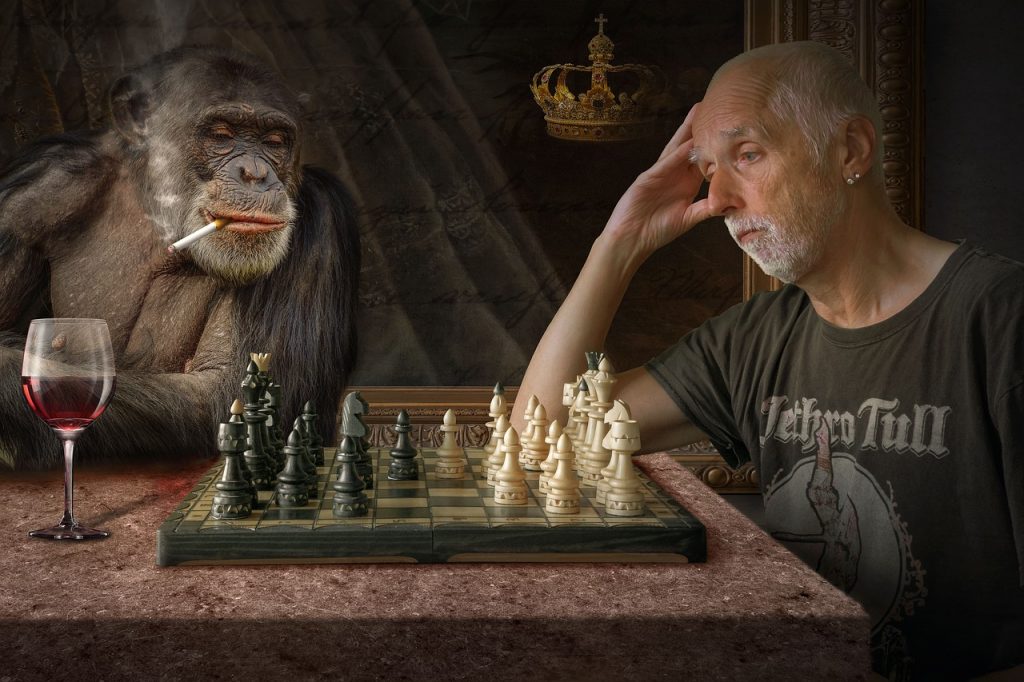
This is our world now. It’s the “new normal,” as President Obama called it (though he had a flailing economy, not the media, specifically in mind). The problem is that most consumers of news media haven’t yet realized that it’s now just entertainment. As such, if we’re not too emotionally tied to the specifics each night, the news can very effectively teach us lessons because we watch and think about what we see–not directly, but by analogy, symbol and metaphor. There are a lot of useful lessons in entertainment; we can learn so much from plays, good novels, movies, sit coms, and news.
Or, more to the point, we learn best by watching the news like any other TV show, and then really thinking about what we watch—applying our best analytical, creative, and independent thinking to what the various “characters” in the big battle for our nation portray. It’s a very effective way to really understand what’s going on. Yes, of course, we also need to dig deeper, read up on events and issues well beyond what the daily news offers. Unless we go deeper, we’ll be starved for wisdom on a news diet of shallow.
But once we’re digging deeper, the daily fare will become interesting again, full of hints and innuendo that spur us to deeper investigation, rather than emotional spin that sways us like sheep. “Shutting down the government—so bad. The poor federal workers, and the plight of their families.” Or, in the view of the other half of the nation: “So good—long overdue. Shut it down more often. It’s too big anyway. Maybe this is the way to finally prune it back to the right size.” Whatever your perspective, on this or any other major issue, both sides are mostly extreme now. “A border wall is essential”, or “A border wall is evil”.

If we get trapped in this emotional tug-of-war, the news is both superficial and misleading. If we step back and admit that it’s mostly entertainment, and take it seriously as entertainment, a whole new view opens up. We start to see.
Also, it becomes fun. At least, it’s a lot more fun than tearing one’s hair out trying to make sense of the totally different messages (about the very same event) on Fox and CNN. Not that fun is the only goal. At some point we need to do something about what’s going on in the world, especially here at home in our own nation. This is the most important thing we can do. But when we let the media guide us, day in and day out, because we think they’re sharing truth when in fact they’re fully committed to agenda and ratings, then we end up doing mostly nothing. Or we do the wrong things.
Behind the Curtain
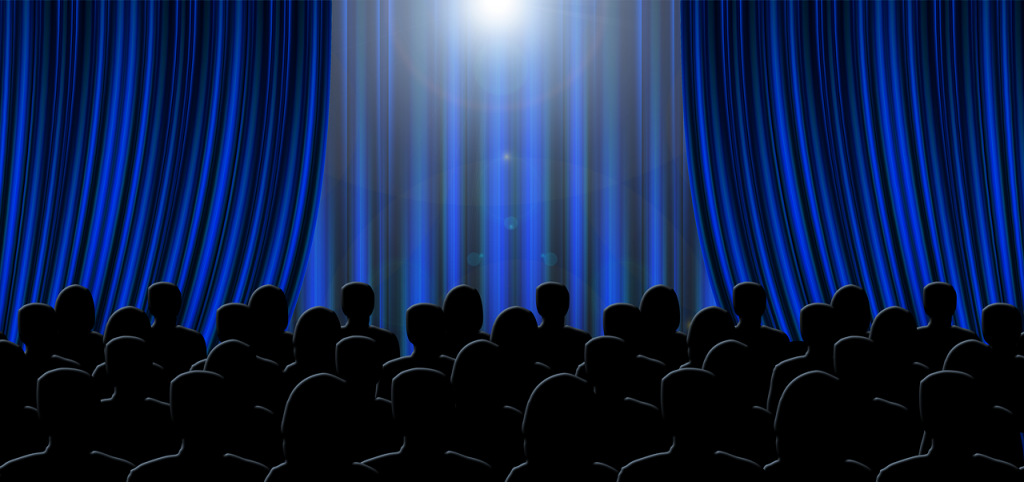
The first action in doing the right things is to really understand what’s going on. To do this in the current media environment, we must see behind the curtain and realize that it’s mostly bells and whistles now, mostly spin. All entertainment. But entertainment with an agenda.
Once we’ve made this leap, to the point that we can enjoy the entertaining debate, smile as the plot develops, and call the show what it is, a show, then we can naturally stop getting trapped by the emotion or swayed by the lead characters. We can watch the background, look for subtext and nuances, consider the goals of the directors and producers, and start getting a feel for what the media outlets are actually trying to create.
This is insider thinking, and very few people engage it. If you learn to call the media’s bluff, to treat it as entertainment because that’s what it actually is, and keep watching—but with a deeper viewpoint—you’ll soon begin seeing the real drama, backstage. When this occurs, you’ll be thinking at a whole new level, and instead of media sway you’ll experience a lot more independent thinking about what’s really happening and what needs to change.
That’s the goal. In truth, the only really good media is the kind where the consumer is skeptical, studies more deeply than most people do nowadays, sees all the main sides of the issue, and draws his/her own conclusions. Any media that effectively encourages this, on purpose or by accident, is a conduit to truth. Ironically, in our time, the more our current media turns to entertainment, for ratings and furthering their agendas, the more people are catching on. And, as a result, more people are digging a lot deeper.
This is a great development. We’ve still got a ways to go, but the modern media is doing us an unintended favor by driving more and more people to their own thinking and personal research for real answers. It wasn’t uncommon twenty years ago for most people to trust the media mostly at face value, accepting its words as truth and its anchors as “wise men”. That era is also gone, and it’s about time. If current trends in media continue, it won’t be long until a lot of the nation is reading, digging, researching, analyzing and writing a lot more—at much higher and deeper levels than we’ve seen since the advent of radio, and then television. This is a powerful development.
ACTION ITEMS
But what can we do?
First Action: Forget institutional news as a communicator of truth. It’s entertainment. It’s a show. Have fun with it. Watch it—yes! But forget the way it’s trying to make you feel and what it’s trying to make you think. Instead, compare and contrast, laugh at it, grin at how ridiculous a story is. Take notes—see which outlets and shows end up being mostly wrong, and mostly right. Watch it closely. Like entertainment—that latest episode of your favorite show, where you don’t want to miss anything. Night after night.
Second Action: As you do more of Action One, begin to read more, watch less. Research more, jump to conclusions less. Be more skeptical. Dig way below the surface reports. As you gain expertise on things, write more. Share your findings. Write about truth, not ratings or agenda. Start looking for others who do the same and follow their work.
Third Action: Eventually, as your expertise grows, write a pamphlet. Or, I guess, given our time in history, an e-pamphlet. A report. Blog it. Share it with others. Your voice of truth is important. At least you’ll be aiming for truth. As this approach spreads to more people, reliance on institutional media—funded and dominated by elites—may well go the way of payphones. Replaced by a better approach. It will at least diminish the level of modern reliance on the wrong kind of media. Technology is well positioned to support this change.
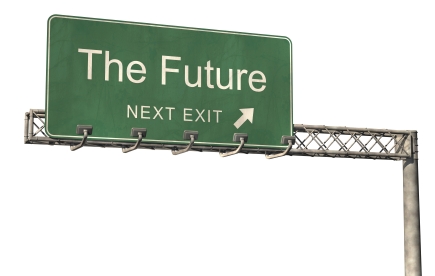
Note that this shift is already happening. But you can’t take advantage of it unless you see the corporate news as entertainment and only really trust news that you have personally researched in depth, digging into all sides and going deep.
Funny thing: this is how people in the American founding era approached news. It’s part of what made them such a freedom-loving people. They mistrusted the “official” news from any source, and they studied things out in depth themselves.
As you become the kind of person who deeply studies issues and current events that matter to you, searching for the real truth, and then sharing it with others, you’ll naturally gain more skill in seeing what’s really going on in the world. You’ll learn to effectively see behind the curtain, past the curtain, to read between the lines. You’ll learn how to watch the news and quickly figure out what’s going on, and then research and find out the specifics. Much of the typical news will appear increasingly ridiculous to you—and to others who adopt this approach.
The recent fall of centralized elite media to something less than journalism is at first glance a great national crisis, but if regular people use this situation as a catalyst to end their dependence on media corporations and instead search out the truth of current events for themselves, we’ll naturally witness a significant rebirth of liberty. This is the real power of grassroots. If the corporations won’t give us media focused on truth, we can go find it on our own. Nowadays we must do this, if we want to actually know what’s happening.
By the way, the three actions listed above are exactly what the American Founding generations did in a world where Britain controlled most of the important media. A rebirth of bottom-up news media focused on truth is a good thing for freedom. Indeed, it’s a necessity. Led by each individual.
But this only works for you if you make the change, personally. The corporations and the government won’t do it for you, as much as they want to and as hard as they’re trying.
Category : Aristocracy &Blog &Citizenship &Community &Constitution &Culture &Current Events &Featured &Generations &Government &History &Information Age &Leadership &Liberty &Politics


